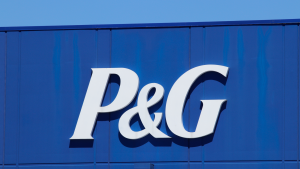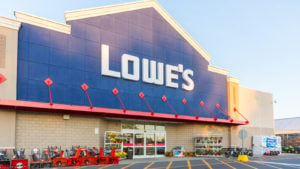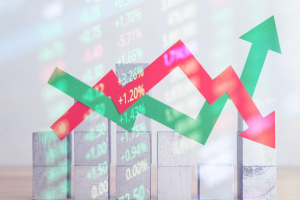
Fundamentally, the case for dividend kings to buy couldn’t be simpler: investors are banking on the proven stability of the underlying enterprises. Since qualifying for the dividend king title involves providing rising annual payouts for at least 50 consecutive years, you can bet that these companies benefit from reliable businesses.
Obviously, this reliability offers much confidence to investors during a period of economic challenges. Not only that, the leadership teams of these entities will be fighting to keep the trend going. No one wants to be known as the administration that messed up a half-century (or more) track record.
With that in mind, you can sleep easy with these stalwart investments. Below are dividend kings to buy.
Procter & Gamble (PG)

As a household goods manufacturer, Procter & Gamble (NYSE:PG) makes a strong case for dividend kings to buy. No matter what’s going on in the economy, people need to take care of themselves and their abodes. Further, P&G enjoys a generational brand advantage. Basically, if your parents used a particular brand growing up, you may be likelier to use the same brand yourself as an adult.
Regarding the passive income, P&G offers a forward dividend yield of 2.4%. That’s solidly higher than the consumer staple sector’s average yield of 1.89%. What’s more, the payout ratio is reasonable at 57.85%, providing investors confidence regarding yield sustainability. Finally, the company offers 69 years of consecutive payout increases.
On a trailing-12-month (TTM) basis, the household goods giant features net income of $14.84 billion on revenue of $84.06 billion. Its profit margin stands at a healthy 18%. For fiscal 2024, experts anticipate earnings per share to rise to $6.55 on sales of $84.36 billion. It’s one of the dividend kings to buy.
Johnson & Johnson (JNJ)

A healthcare stalwart, Johnson & Johnson (NYSE:JNJ) last year spun off its consumer health products line. Today, the company focuses on pharmaceuticals and medical technology. What makes JNJ stock one of the dividend kings to buy comes down to established relevance. Despite the pursuit of wealth, if one loses health, it’s all over. In that cynical sense, J&J deserves to be on your radar.
On a more pleasant note, the company is one of the giants when it comes to dividend kings to buy. Currently, the company offers a forward yield of 3.21%. That’s well above the healthcare sector’s average yield of 1.58%. Further, the payout ratio sits at 45.25%, which promotes confidence regarding yield sustainability. It commands 63 years of dividend increases, allowing for easy sleeping.
In the market, JNJ stock admittedly incurred a choppy profile. At the same time, investors merely need to exercise patience. On a TTM basis, the company’s net income stands at $17.07 billion on revenue of $85.65 billion. It features a profit margin of just under 45%.
For fiscal 2024, experts are looking for EPS of $10.65 on sales of $88.35 billion. That’s a decent improvement over last year’s results of $9.92 EPS with a top line of $85.16 billion.
Coca-Cola (KO)

One of the biggest names in capitalism, Coca-Cola (NYSE:KO) needs no introduction. However, it must be said that as a soft-drink giant with popular product lines, Coca-Cola could benefit from the trade-down effect. Should circumstances remain challenging in the consumer economy, people may gravitate toward cheaper pick-me-ups. Few items are cheaper than beverages under the Coca-Cola umbrella relative to going to a pricey coffee shop for a caffeine fix.
Regarding passive income, the company offers a forward yield of 3.08%. Again, that’s well above the consumer staple sector’s average yield of 1.89%. It must be said that the payout ratio is a bit elevated at 64.39%. Still, it’s below the 70% threshold that many investors use to gauge the point where the ratio becomes concerning. Importantly, the beverage maker carries 63 years of consecutive payout increases.
Over the past 12 months, Coca-Cola’s net income clocked in at $10.78 billion on revenue of $46.07 billion. For fiscal 2024, covering experts anticipate EPS of $2.82 on sales of $45.69 billion. Notably, the high-side sales target stands at $46.28 billion. Thanks to the underlying relevance, KO ranks among the top dividend kings to buy.
Lowe’s (LOW)

Specializing in the home improvement retail sector, Lowe’s (NYSE:LOW) could be an intriguing idea for dividend stocks to buy. Thanks to previous years’ low interest rate environment boosting real estate demand, we’ve seen an influx of homeowners. Specifically, we’ve seen an influx of homeowners who bought their property without contingencies. Cynically, that could bite them. But that also may lift demand for Lowe’s.
Either way, LOW presents an intriguing investment idea. Sure, the company doesn’t offer the highest yield at 1.9%. However, with a payout ratio of only 32.74%, you can trust that the passive income is dependable. Also, it is slightly above average for the sector. Most importantly, the company commands 52 years of consecutive dividend increases.
In the trailing year, Lowe’s net income landed at $7.71 billion on sales of $86.38 billion. Its profit margin comes in at just under 9%. For the current fiscal year, analysts project EPS of $12.19 on revenue of $84.43 billion. Thanks to the company’s everyday utility, LOW is one of the dividend kings to buy.
Genuine Parts (GPC)

Operating in the broader consumer cyclical ecosystem, Genuine Parts (NYSE:GPC) focuses on the auto parts sector. This arena could be intriguing because the average age of vehicles on U.S. roadways keeps rising. Right now, it’s around 12.5 years. This dynamic suggests that economic forces are preventing people from buying replacement vehicles with a great degree of frequency.
Cynically, this framework should be bullish for GPC stock: Genuine Parts should see rising demand as people look to hold onto their vehicles for longer. In that context, the company’s forward yield of 2.62% is very attractive. Not only that, the payout ratio sits at 37.12%. Lastly, Genuine commands 69 years of consecutive payout increases.
Financially, the company’s TTM net income comes in at $1.26 billion on revenue of $23.11 billion. For fiscal 2024, analysts believe that Genuine will post EPS of $9.90 on sales of $23.81 billion. And for the following year, EPS could rise to $10.74 with a top line of $24.9 billion. Given the potential continued relevancy, GPC is one of the dividend kings to buy.
Fortis (FTS)

Based in Canada, Fortis (NYSE:FTS) falls under the utilities ecosystem; specifically, the regulated electric space. Per its public profile, Fortis operates as an electric and gas utility, covering its home market, the U.S. and the Caribbean countries. What I appreciate about major utilities is that they command natural monopolies. Effectively, they enjoy competitive entrenchment so would-be rivals don’t even bother.
Regarding passive income, Fortis offers a forward yield of 4.25%. That’s above the utility sector’s average yield of 3.75%, which is already quite lofty. To be fair, the payout ratio of 71.59% is on the elevated side of the spectrum. However, the company also offers a track record of 50 years, which is impressive.
Over the past 12 months, Fortis’s net income stands at $1.53 billion on revenue of $11.32 billion. Its profit margin clocks in at 14.11%. For fiscal 2024, covering experts believe that EPS will rise to $2.37 on sales of $8.93 billion. Last year, the company posted EPS of $2.26 with a top line of $8.42 billion. It’s one of the dividend kings to buy (or at least to put on your watch list).
Archer Daniels Midland (ADM)

Based in Chicago, Illinois, Archer Daniels Midland (NYSE:ADM) falls under the consumer defensive umbrella. Specifically, it’s involved in the farm products subcategory. Per its corporate profile, Archer Daniels engages in the procurement, transportation, storage, processing and merchandising of agricultural commodities, ingredients, flavors and solutions. Intuitively, ADM ranks among the top dividend kings to buy because it pertains to the global food supply chain.
Regarding the passive income, Archer Daniels offers a forward yield of 3.25%. That’s a healthy clip above the sector average. Further, the payout ratio is very reasonable at 35.55%, affording confidence toward yield sustainability. Most importantly, the company enjoys a track record of 52 years of consecutive payout increases.
Financially, the company prints a net income of $3.04 billion over the TTM period. In addition, it posted revenue of $91.71 billion. For fiscal 2024, analysts believe EPS will land at $5.59 on sales of $91.06 billion. That’s disappointing. However, the high-side target calls for EPS of $5.91 with a top line of $101.07 billion. Therefore, it deserves consideration for dividend kings to buy.
On the date of publication, Josh Enomoto did not have (either directly or indirectly) any positions in the securities mentioned in this article. The opinions expressed in this article are those of the writer, subject to the InvestorPlace.com Publishing Guidelines.





